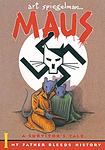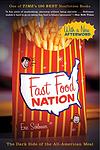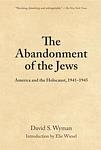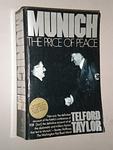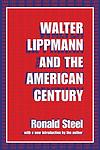The Greatest American "Germany, Nonfiction" Books of All Time
Click to learn how this list is calculated.
This list represents a comprehensive and trusted collection of the greatest books. Developed through a specialized algorithm, it brings together 305 'best of' book lists to form a definitive guide to the world's most acclaimed books. For those interested in how these books are chosen, additional details can be found on the rankings page.
Genres
The category of "Germany" in terms of books would encompass literature that is set in or about Germany, its history, culture, people, and society. This could include works of fiction, non-fiction, memoirs, biographies, and historical accounts that explore various aspects of German life, such as the country's politics, economy, art, music, literature, and more. The category would be of interest to readers who are fascinated by Germany's rich and complex history, its contributions to world culture, and its ongoing role in shaping global affairs.
Countries
Date Range
Reading Statistics
Click the button below to see how many of these books you've read!
Download
If you're interested in downloading this list as a CSV file for use in a spreadsheet application, you can easily do so by clicking the button below. Please note that to ensure a manageable file size and faster download, the CSV will include details for only the first 500 books.
Download-
1. Maus by Art Spiegelman
This graphic novel tells the story of a Holocaust survivor, as narrated by his son. The unique use of animals to represent different nationalities and ethnic groups adds a distinctive layer to the narrative. The protagonist's father recounts his experiences as a Polish Jew during World War II, offering a poignant depiction of the horrors of the Holocaust. The narrative also explores the complex father-son relationship, revealing the impact of such traumatic historical events on subsequent generations.
The 407th Greatest Book of All Time -
2. The Making of the Atomic Bomb by Richard Rhodes
This comprehensive book provides an in-depth account of the development of the atomic bomb during World War II. It explores the scientific advancements that made the bomb possible, the political decisions that led to its creation, and the moral dilemmas faced by the scientists involved. The book also details the personalities of key figures in the Manhattan Project, the effects of the bomb on Hiroshima and Nagasaki, and the impact of nuclear weapons on the world.
The 847th Greatest Book of All Time -
3. The Guns of August by Barbara Wertheim Tuchman
"The Guns of August" is a detailed and engaging account of the first month of World War I. The book explores the events leading up to the war, the political and military strategies of the various countries involved, and the critical decisions that shaped the course of the conflict. It presents a vivid picture of the war's early stages, highlighting the miscalculations, miscommunications, and misunderstandings that led to one of the most devastating wars in history.
The 919th Greatest Book of All Time -
4. The Great Railway Bazaar by Paul Theroux
"The Great Railway Bazaar" is a travelogue in which the author embarks on a four-month journey by train from London through Europe, the Middle East, the Indian subcontinent, Southeast Asia, and Siberia, and then back to Europe. The book is a vivid and insightful account of the people, cultures, landscapes, and experiences encountered during the journey, painting a unique picture of the world as seen from the perspective of a train window. The author's sharp observations and engaging storytelling make this journey as much an inner exploration as a geographical one.
The 1050th Greatest Book of All Time -
5. The Rise and Fall of the Third Reich by William L. Shirer
This book provides a comprehensive history of Adolf Hitler's Third Reich, from its inception to its downfall during World War II. The author, an American journalist who reported from Germany and Austria during the Nazi era, uses firsthand accounts, interviews, and Nazi documents to detail Hitler's rise to power, the mechanisms of the Nazi state, and the events leading to and during World War II, including the Holocaust. The book concludes with an analysis of why the Third Reich fell and the aftermath of its collapse.
The 1721st Greatest Book of All Time -
6. All But My Life by Gerda Weissmann Klein
"All But My Life" is a poignant memoir of a young woman's six-year ordeal as a victim of Nazi cruelty. The narrative follows her life from a peaceful, upper-middle-class childhood in Bielitz, Poland, through her horrifying experiences and loss during the Holocaust, to her miraculous survival and marriage to an American soldier. It is a story of courage, resilience, and the enduring power of hope.
The 2695th Greatest Book of All Time -
7. The Politics Of Cultural Despair by Fritz Stern
This book is a critical historical analysis that delves into the intellectual roots of cultural pessimism in Germany leading up to the rise of National Socialism. It examines the works and influence of three prominent conservative critics from the late 19th and early 20th centuries, who lamented the perceived decline of traditional values and the erosion of social cohesion in the face of modernity and liberalism. The author argues that their reactionary critique of contemporary culture and their yearning for a return to an idealized past laid the groundwork for the ideological underpinnings of fascism, demonstrating how cultural despair can be manipulated into political extremism.
The 3281st Greatest Book of All Time -
8. Fast Food Nation by Eric Schlosser
This book is an in-depth exploration of the fast food industry in America, examining its history, business practices, and impact on society. The author investigates the industry's influence on America's economy, health, and culture, revealing disturbing facts about the production process, the exploitation of workers, and the health risks associated with fast food consumption. The book serves as a critique of the fast food industry and its detrimental effects on American society.
The 4387th Greatest Book of All Time -
9. Critique Of Religion And Philosophy by Walter A. Kaufmann
This book presents a comprehensive examination and critique of both religious thought and philosophical traditions, arguing that the two disciplines have often failed to address fundamental human concerns in a satisfactory manner. The author challenges the reader to question conventional wisdom, advocating for a more critical, honest approach to understanding the human condition. Through a detailed analysis of historical and contemporary philosophical arguments, as well as religious doctrines, the work encourages a more nuanced, thoughtful engagement with the questions that have perplexed humanity for centuries, ultimately calling for a synthesis of the best aspects of religious and philosophical thought.
The 4638th Greatest Book of All Time -
10. The Cunning Of History by Richard L. Rubenstein
This book delves into the dark and complex relationship between the Holocaust and the broader course of Western civilization, arguing that the mass extermination of Jews during World War II was not an aberration but a reflection of the destructive tendencies inherent in modern society. The author explores how bureaucratic efficiency, technological advancement, and the pursuit of rational goals led to the industrial-scale atrocities of the Holocaust. By examining the ethical and moral implications of these events, the work challenges readers to reconsider the costs of progress and the nature of evil within the context of history's relentless march forward.
The 4769th Greatest Book of All Time -
11. In My Hands by Irene Opdyke
This memoir recounts the story of a Polish woman who, during World War II, worked as a housekeeper for a Nazi major while secretly aiding the Jewish resistance. She risked her life by hiding Jews in the basement of the Nazi officer's house, stealing food and supplies for them, and eventually leading them to safety. Despite the constant threat of discovery and the moral complexities she faced, she persevered in her efforts to save lives, demonstrating remarkable courage and resilience.
The 5013th Greatest Book of All Time -
12. The Rest is Noise by Alex Ross
"The Rest is Noise" is a comprehensive exploration of 20th-century classical music, examining the social, political, and cultural contexts that influenced its development. It provides a detailed study of the works of renowned composers, their inspirations, and their impact on the musical world. The book also explores the ways in which classical music has intersected with major events and movements of the 20th century, including two World Wars, the Cold War, and the rise of totalitarian regimes.
The 5415th Greatest Book of All Time -
13. The Fate Of Reason by Frederick C. Beiser
This book provides a comprehensive analysis of the German Enlightenment's relationship with and reaction to the radical skepticism and pantheism of Spinoza, tracing the intellectual journey of German thinkers from the late 18th to the early 19th century. It delves into how these thinkers grappled with the challenges posed by Spinoza's ideas, striving to reconcile reason with faith and freedom with necessity. The narrative explores the evolution of philosophical thought during this period, highlighting the efforts to preserve the autonomy of reason against the backdrop of an increasingly deterministic universe. Through a detailed examination of the works of key figures, the book illustrates the complex dynamics between the Enlightenment's ideals of rationality and the emerging critiques that would eventually lead to the development of German Idealism.
The 5661st Greatest Book of All Time -
14. The True Believer by Eric Hoffer
"The True Believer" is a philosophical analysis of the nature of mass movements and the people who constitute them. The book argues that regardless of the specific cause, whether it be religious, political, or social, all mass movements are interchangeable and their followers are essentially the same. The author suggests that the driving force behind these movements is not the ideology itself, but rather the personal dissatisfaction and frustration of the individuals involved. The book also explores the lifecycle of mass movements, from their creation to their eventual dissolution.
The 6182nd Greatest Book of All Time -
15. The Crime And Punishment Of I. G. Farben by Joseph Borkin
"The Crime and Punishment of I.G. Farben" explores the dark history of the German chemical conglomerate I.G. Farben, which played a significant role in supporting Nazi war efforts and exploiting forced labor during World War II. The book delves into the company's development of Zyklon B, used in the gas chambers, and its post-war repercussions, including the Nuremberg Trials where several executives were prosecuted. The narrative critically examines the moral and ethical responsibilities of corporations in wartime, highlighting the complex interplay between industry and government in the machinery of genocide.
The 6260th Greatest Book of All Time -
16. The Haunted Land by Tina Rosenberg
"The Haunted Land" is a compelling exploration of the aftermath of communism in Eastern Europe, specifically in the Czech Republic, Poland, and Germany. The book delves into the struggles of these nations as they grapple with their pasts under oppressive regimes, and their attempts to move forward towards democracy. The narrative also examines the moral dilemmas faced by these societies as they confront issues of justice, retribution, and memory.
The 6400th Greatest Book of All Time -
17. Evil In Modern Thought by Susan Neiman
This book offers a comprehensive exploration of the concept of evil from the Enlightenment to the present, examining how the question of evil has been a central concern for modern philosophers. The author traces the evolution of the ideas surrounding evil, from attempts to understand its origins and nature, to its profound impact on philosophical thought and ethical considerations. Through a detailed analysis of major philosophical works and thinkers, the text delves into how the problem of evil has shaped modern philosophy's approach to morality, religion, and the meaning of life, arguing that the struggle with the concept of evil is essential to understanding the progress and challenges of contemporary thought.
The 6882nd Greatest Book of All Time -
18. The Abandonment Of The Jews by David S. Wyman
The book examines the response of the United States and its allies to the Holocaust during World War II, focusing on the period from 1941 to 1945. It critically analyzes the failure of these governments to take more decisive action to rescue Jews from Nazi extermination. The author explores the reasons behind this inaction, including bureaucratic indifference, a lack of public pressure, and prevalent anti-Semitic attitudes. The book also discusses specific opportunities for intervention that were missed, and it scrutinizes the roles played by key political figures and organizations during this period. Through detailed research, the work presents a compelling case of moral failure amidst one of humanity's darkest chapters.
The 7144th Greatest Book of All Time -
19. The Bourgeois Experience by Peter Gay
"The Bourgeois Experience" explores the cultural and psychological nuances of the Victorian middle class, focusing on their attitudes towards love, sex, and personal identity. The book delves into how bourgeois values, shaped by capitalist and Protestant ethics, influenced private life and public behavior. Through a detailed examination of diaries, letters, and other personal documents, the author reveals the complexities and contradictions of bourgeois culture, challenging traditional views that often depict Victorian society as prudish and hypocritical. This work provides a nuanced understanding of the interplay between economic conditions, social norms, and intimate life in 19th-century bourgeois society.
The 7144th Greatest Book of All Time -
20. Shadow Divers by Robert Kurson
This non-fiction book chronicles the dangerous and suspenseful adventure of two deep-sea wreck divers who, in 1991, discovered a sunken German U-boat off the coast of New Jersey. Despite the risks and the skepticism of experts, the divers became obsessed with identifying the seemingly untraceable submarine. Their quest for answers led them to delve into historical records and put their lives on the line during numerous dives, ultimately revealing the U-boat's identity and bringing closure to a long-lost chapter of World War II history. The story is a testament to the power of curiosity, perseverance, and the human spirit's drive to solve the mysteries of the past.
The 7840th Greatest Book of All Time -
21. The Thirty Years’ War by Andrew Kopkind
"The Thirty Years’ War" provides an in-depth analysis of one of Europe's most prolonged and devastating conflicts, spanning from 1618 to 1648. The book delves into the complex interplay of religious, political, and social factors that fueled the war, primarily fought within the Holy Roman Empire. It examines the roles of key figures and the impact of the war on the civilian population, highlighting the immense human suffering and the significant political changes it precipitated, which reshaped the European landscape. The narrative also explores the diplomatic maneuvers and treaties, culminating in the Peace of Westphalia, which significantly influenced the concept of state sovereignty and the modern international system.
The 7901st Greatest Book of All Time -
22. Lords of Finance: The Bankers Who Broke the World by Liaquat Ahamed
The book offers an in-depth analysis of the events leading up to the Great Depression from the perspective of four central bankers from the United States, Britain, France, and Germany. The author argues that these individuals, through their decision-making and policies, inadvertently contributed to the economic turmoil of the 1930s. The book provides a historical examination of the global financial system, monetary policy, and the role of central banks, ultimately highlighting the human factor in economic catastrophes.
The 7915th Greatest Book of All Time -
23. Holocaust Testimonies by Lawrence L. Langer
"Holocaust Testimonies" is a profound exploration of the personal narratives of survivors of the Holocaust, analyzing the complex ways in which they articulate their experiences of unimaginable trauma. The book delves into the psychological and emotional impact of their memories, examining how survivors struggle to convey the reality of the Holocaust and how their testimonies challenge the listener's understanding of human nature and history. Through a careful study of these personal stories, the book reveals the enduring impact of the Holocaust on individual lives and the collective memory, emphasizing the importance of bearing witness to the truths of human suffering and resilience.
The 8213th Greatest Book of All Time -
24. Munich: The Price of Peace by Telford Taylor
"Munich: The Price of Peace" is a comprehensive examination of the Munich Agreement of 1938 and its implications on the onset of World War II. The book critically analyzes the roles of the key players - Britain, France, Germany, and Italy - in the agreement, their motivations, and the subsequent consequences. It provides an in-depth study of the diplomatic maneuvers, political intrigues, and the failure to stand against Hitler's aggression, which eventually led to the catastrophic global conflict.
The 8305th Greatest Book of All Time -
25. Walter Lippmann and the American Century by Ronald Steel
This book provides an in-depth look at the life and work of Walter Lippmann, one of the most influential journalists in American history. The author explores Lippmann's role in shaping 20th century American politics and public opinion, his relationships with key political figures, and his views on democracy, liberty, and international relations. The book also examines Lippmann's personal life, including his early years, education, and family life.
The 8351st Greatest Book of All Time
Reading Statistics
Click the button below to see how many of these books you've read!
Download
If you're interested in downloading this list as a CSV file for use in a spreadsheet application, you can easily do so by clicking the button below. Please note that to ensure a manageable file size and faster download, the CSV will include details for only the first 500 books.
Download